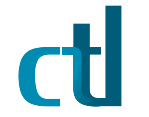
The topic of this week’s post is trust. Harriette Rasmussen and Mohammed Raei’s interview with Scott and myself on The Diverse Drivers of Trust, took us through an overview of their thinking on this topic and here I’ll add a few reflections of my own. The first thing that occurs to me is that trust is one of these factors that has a very subtle and powerful basis and can even be seen as being rooted in our worldview. I recall a quote from Einstein that the most important question we have to answer for ourselves is, is the universe a friendly place? Do we have ‘trust’ in life itself?
This theme about the importance of our worldview or mindset (a loose term in itself – Theo Dawson wrote a nice little piece on it) came up in a morning read from the BBC on mindset in relation to willpower. This focuses on research that has challenged the view that we have a fixed amount of energy for exerting willpower, and if we have a high cognitive load, we are less likely to have enough willpower to regulate our behavior in ways we might desire or intend. (This is the ego depletion theory). The research they describe shows that some people have a “non-limited” view of willpower, and that this mindset can be a positive factor in various aspects of our lives.
Of course, the notion of fixed or growth mindset that Carol Dweck popularized can be seen as a similar view. I’ve come across this in pop psychology, with relatively simplistic views of ‘just have a positive attitude,’ as well as in deeply researched cellular biology. We could even point to Heisenberg’s uncertainty principle and the way the act of observing affects what is being observed on a physical level to find a variation of this theme.
This set of associations that came to mind as I started writing this gives me the impression that this notion of mindset or worldview can likely also be applied to how we understand trust. If we have a fixed view of trust, then we need to keep some kind of accounting. Have we earned enough? Did we care in the right way? Did we spend too much of it in terms of using our social capital to lead an adaptive challenge? This kind of calculus of trust is one way to go about it. For me, it seems a bit exhausting.
By this, I don’t mean it is invalid to be mindful of how much we have earned or spent trust. I just find that from the view of the universe being a friendly place, there can be a different approach to trust. It might not be a fixed sum game. It might be that the more we give, the more we get.
